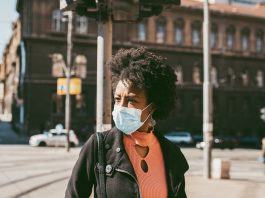New study shows that the reduction of air pollution during the COVID-19 lockdowns has averted tens of thousands of deaths in Europe and Asia.
According to research published in The Lancet Planetary Health, a team from the University of Notre Dame have discovered that in China air pollution during the COVID-19 lockdowns dropped by an unprecedented 29.7%, and by 17.1% in parts of Europe.
The team studied particulate matter as a way of determining the levels of air pollution. Particulate matter are tiny airborne particles smaller than 1/10,000 of an inch in diameter and can be produced by a variety of combustion-related sources including industrial emissions, transportation, wildfires and chemical reactions of pollutants in the atmosphere.
Paola Crippa, assistant professor in the Department of Civil and Environmental Engineering and Earth Sciences at Notre Dame and corresponding author of the study, said: “We look on these lockdowns as the first global experiment of forced low-emission scenarios. This unique, real-world experiment shows us that strong improvements in severely polluted areas are achievable even in the short term, if strong measures are implemented.”
Crippa and her team integrated advanced computer simulations with measured particulate matter concentrations from more than 2,500 sites in Europe and China between 1 January 2016 and 30 June 2020 – during which both regions initiated lockdowns as COVID-19 began spreading rapidly.
The impact of reduced air pollution
Air pollution is considered the leading environmental cause of death. In 2016, the World Health Organization attributed air pollution to 4.2 million premature deaths worldwide, with Western Pacific and Southeast Asian regions being the most affected.
The team estimated rates of premature death against four different economic recovery scenarios: an immediate resumption to normal activity and subsequent emissions, a gradual resumption with a three-month proportional increase of emissions, the potential of a second outbreak of COVID-19 between October and December in each region, and a permanent lockdown for the remainder of 2020 in the case of ineffective control strategies.
From February to March, the study found an estimated 24,200 premature deaths associated with particulate matter were averted throughout China as a result of reduced air pollution during the COVID-19 lockdowns. The study also found that, in Europe, an estimated 2,190 deaths were avoided during the lockdown period when compared to averages between 2016 and 2019. The averted fatalities figures become much larger (up to 287,000 in China and 29,500 in Europe) when considering long-term effects, which will depend on the future pathway of economic recovery.









